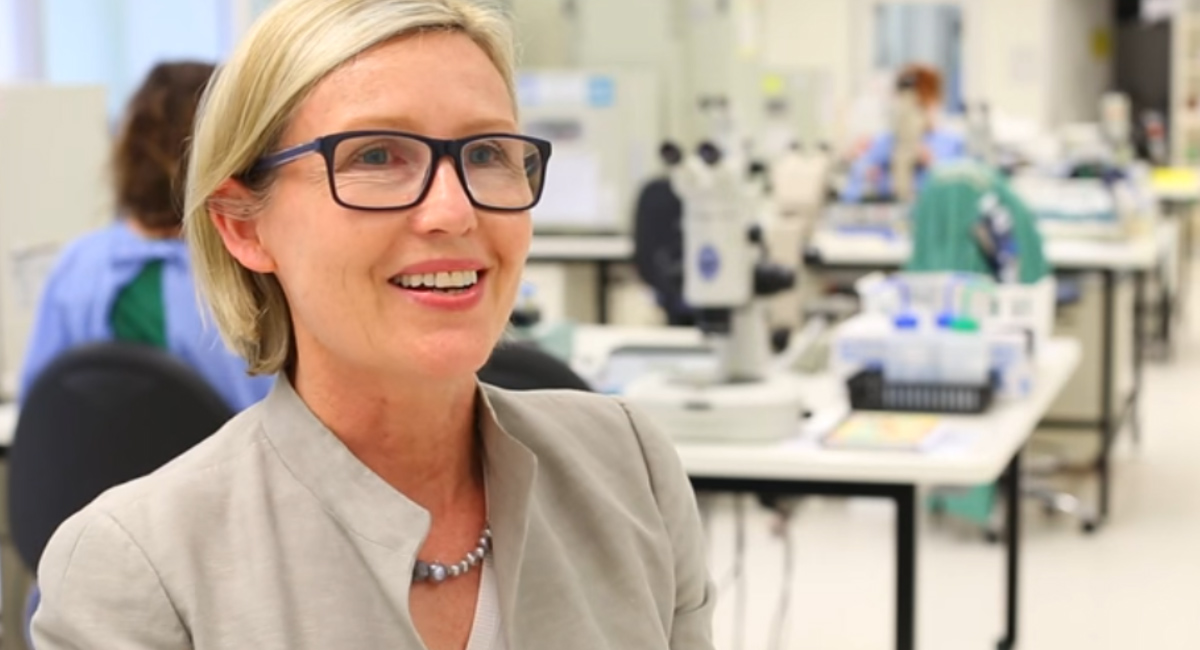Professor Sarah Robertson from The University of Adelaide is recipient of an NHMRC Investigator Award and was awarded the Elizabeth Blackburn Investigator Grant Award (Leadership in Basic Science) at the 2020 NHMRC Research Excellence Awards.
It can surprise people to learn that many children are born already predisposed to chronic health conditions because of avoidable exposures and events in pregnancy. Many children are born too early, underweight, or experience inflammatory injury in utero. Because fetal development is so responsive to environmental conditions, perturbations can embed permanent elevated risks for metabolic disorders (obesity, diabetes, cardiovascular dysfunction); neurological disorders (cerebral palsy, autism, depression and anxiety) and immune disorders (allergy, asthma, autoimmunity) that limit a child’s capacity to attain his or her maximum life-course potential.

The research program I lead strives to advance knowledge of events in the peri-conception environment that set the course of fetal development, and guard against adverse pregnancy outcomes to protect infant health. In particular, the research focuses on the mother’s immune response, which is critical to guard against inflammation-induced obstetric disorders including preeclampsia, spontaneous preterm birth, and fetal growth restriction.
These conditions together affect tens of thousands of Australian families every year and involve substantial costs to families and our health care system. Notably, around 8 per cent of Australian babies are born prematurely, and another 1 in 200 are stillborn.
With modern post-natal health care most premature babies will survive, but they are at higher risk of developmental problems and complications. Even those born after 36 weeks gestation can experience effects of exposure to inflammation in utero, and many conditions afflicting children can be traced back to developmental disturbances before birth.
The aspect of the immune response at fault is tolerance of fetal transplantation antigens inherited from the father. Insufficient immune tolerance is implicated as the central lesion and/or a pre-disposing factor in the placental inflammation that underpins preeclampsia, preterm birth and fetal growth restriction. Reproductive disorders including recurrent implantation failure and recurrent miscarriage can also arise when maternal immune tolerance is more severely compromised. These conditions exhibit a hallmark ‘shallow’ placentation, consistent with origins in very early pregnancy in the phase spanning conception and embryo implantation.
The focus of my group is on a subset of immune cells known as regulatory T cells (or ‘Treg cells’) that arise at implantation to suppress inflammation and prevent effector immunity that threatens conceptus viability, while stimulating the uterine vasculature to promote a strong blood supply to the placenta. We have demonstrated that remarkably, the father’s seminal fluid plays a key role in stimulating Treg cells to become activated and proliferate in the pre-implantation phase, and paternal health at conception can affect the degree to which this occurs.
The program of research will define critical rate-limiting elements and mechanisms of immune tolerance required for protection from pregnancy loss and prevention of preeclampsia, preterm birth, disrupted fetal developmental programming, and stillbirth. A key focus is the pre- and peri-conception environment, and the roles of female Treg cells, cytokines, microRNAs and male partner seminal fluid components in priming the female immune response to accommodate pregnancy and ensure healthy outcomes for women and their infants.
Our observations point to an opportunity to target Tregs to treat the immune imbalance in fertility and pregnancy disorders. To advance this strategy, the mechanisms by which defective Tregs arise must be elucidated, so interventions can be identified and trialled.
Over several years, we have already defined the pathways by which Treg cells are generated. The Treg cell pool in pregnancy is specific to the conceiving partner’s alloantigens and appears exquisitely sensitive to immune-regulatory agents, hormones and cytokines present when those antigens are first encountered. Extensive studies in genetic mouse models have defined factors in seminal fluid and the uterus that are instrumental for inducing Treg cell-mediated pregnancy tolerance. Critical permissive and inhibitory factors that impact the quality of the female Treg response have been identified.
Clinical studies, undertaken in partnership with leading clinicians in reproductive medicine and obstetrics, indicate comparable pathways operate in women and men, but are vulnerable to genetic variables and preventable lifestyle, environmental and health causes.
There is now widespread recognition that the immune response will be a tractable target to manage infertility and pregnancy disorders. The women’s health industry is investing in this goal. Given the rapid advances in Treg therapeutics in other diseases, coupled with the potential of informative blood-based diagnostics, there is a strong argument for targeting Tregs in reproductive and obstetric medicine.
There has been a long-held view that disparity in infant health at birth is unavoidable – but with better understanding of the causes now emerging, this is no longer tenable. There is a strong imperative to develop interventions to mitigate harm and lessen adversity impacting life before birth.
This research has the potential to transform understanding of the biological mechanisms governing human reproduction, fertility and pregnancy health, to give rise to novel diagnostics for immune-based reproductive and pregnancy disorders, and ultimately inform innovative therapies to improve birth outcomes for families in Australia and around the world.
The Elizabeth Blackburn Investigator Grant Awards are named to honour the Australian Nobel Laureate Professor Elizabeth Blackburn AC FRS FAA FRSN, a molecular biologist who received the Nobel Prize in Physiology or Medicine in 2009 jointly with Professor Jack Szostak and Professor Carol Greider for the discovery of how chromosomes are protected by telomeres and the enzyme telomerase. The awards were established to promote and foster the career development of female researchers and are awarded annually to the highest ranked female applicant (Leadership category) in each of the Basic Science, Clinical Medicine and Science, Public Health and Health Services research areas of the Investigator Grants scheme.
See the full list of 2020 Research Excellence Awards recipients.
